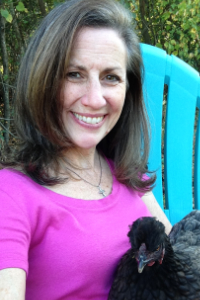Our Storybook World
by Susannah Pearce | December 28, 2016 12:04 am

Who doesn’t love a good story? I know I do. It’s part of the human thing, I think. People tell stories. We tell legends to explain our world. We tell long jokes to make us laugh. We tell of heroic deeds for our inspiration. Stories are all around us. They tie us to the past, teach us lessons, warn us for the future, entertain us. We just can’t get enough!
Many people are even compelled to make up and write stories—as if there might be a shortage. Long stories, short stories, scary stories, funny stories—libraries devote half their space to stories: fiction. Part of the other half is devoted to stories of people who have really lived, too: biographies.
We seem to have a desire to know the lives of others, real and fictional. Books are a marvelous place to discover them. Movies and television draw us, too, for the same reason. Really good stories keep us coming back again and again. Everyone who has ever read a story to a four-year-old knows this all too well!
Perhaps this love of stories has grown from a seed planted by our Creator at the beginning of time. Time (itself a created thing) is the page He prepared on which to compose the narrative of His love story with mankind—The Story. This story plays out over the course of creation and is recapitulated in each era, each generation, each family and in the life of each individual. He loves you. He calls to you. You respond. The story is usually more complicated than that—and that’s what makes the story of each individual fascinating.
It is not necessary to take a trip to the library or the book store to find epic stories. The whole world is a library—a liverary! Walk through a neighborhood and imagine each house a novel. Characters have been developed by The Author over the course of the story, which spans generations. The characters themselves drive their own tales, to a large extent, too. Some households may resemble Russian novels with such a multiplicity of characters (and endless pet names) that it’s hard to keep track. Another home might be a lonely, stark poem that would bring tears to your eyes—if you could read it. Still others have all the joy and humor of a Shakespeare comedy. Adventure stories abound!
Some of the stories we encounter seem compelling from the outset. But, as it is said, we mustn’t judge a book by its cover. There are some very interesting stories are hidden behind unassuming covers. A tattered, dusty, torn dust jacket may conceal a long hidden gem. A boring looking anthology might hold some fantastic, little-known short stories. Neither should we judge a person by his “cover.”
I don’t just mean we should see the value in those who are homeless or “undesirable” in the opinion of the “respectable” crowd. Their stories clearly have interesting, though tragic, turns—that ought to touch our hearts. Even the stories of the folks we encounter in our own mundane surroundings are carefully crafted, ongoing narratives of struggles, battles, losses and victories large and small. None should be discounted. Not the poor; not the rich. Not the holy; not the sinner. Not the conventional; not the weird. Not the nice; not the annoying.
Every encounter we have (or choose not to have) with another person inserts us into their story—and them into ours. How will that encounter affect the plots as they intersect? Will the stories become entwined? Will we remain a wash of descriptive scenery in the other’s story? In many cases is up to us—and it’s not necessary that we move the plot along in every story we enter. But it is good to know we are part of their story.
It is worth getting to know the stories of others—or to at least realize that each person has a story. But it does not end there. Unlike novels, the stories of others’ lives are not there just for our entertainment and edification. To see them in that way would be to use others. People are to be loved, not used. However interesting these life stories are, the goal is the same for all of our narratives: to enter in to the heavenly banquet at the end. From above, from the Author’s view, each story was begun in order to have a happy ending ultimately.
Our story does not end with our death, but with our final destination after death—an ending not seen by others. God has given each of us, as the protagonist of our own story within the long saga of human history, the autonomy of free will to craft our own tale with each decision we make. He works to keep His intended goal of eternal union with Him always accessible to us. However far we stray we shall never find ourselves outside the possibility of The happy ending we were made for—if we but make the one choice that takes us there.
However vile and seemingly unlovable a person is, he or she is never beyond redemption. And, however far down the path away from God they wander—or sprint—a plot twist is only one choice away. And, though the story may feel like a tragedy to someone on the outside, the final choice in the last paragraph of the last page can turn the tale into a happy romance!
Shall we not approach every human person as an unread drama in which we can take part for good or ill? The choice is mine to perceive another as the hero of their tale or a villain in mine. By choosing hero, we enrich not only their, but our own stories. And, it may help them—and us—to choose their happy ending when we see the Cinderella in the char woman, the swan in the ugly duckling, the princess in the prostitute and the generous, post-ghost Scrooge in the miser.
Our story-book world is a liverary of potential happy endings.
Please share this post on social media.

Susannah Pearce
Author Bio:
I’m a Catholic homeschooling mom of two, who supports Distributism (thinking small and local with regard to economics), universality (with regard to respect for the dignity of the human person), humor (with regard to humor), integrity (with regard to what we should strive for).
I’m from Southern California and am now living in The South with my husband (a writer) and two kids—and an unspecified number of chickens! I do many things badly because that’s often the best I can manage. Ever heard G.K. Chesterton’s quip? “Anything worth doing is worth doing badly.”
Susannah has a MA in Theology from Franciscan University in Steubenville and blogs at: Slow Going[1].
- Slow Going: https://slowgoinglife.blogspot.com
Source URL: https://integratedcatholiclife.org/2016/12/pearce-our-storybook-world/